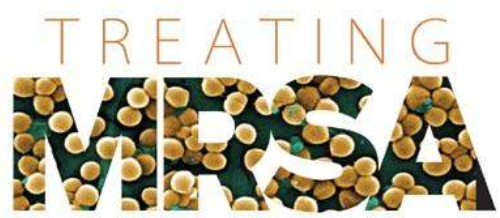MRSA infections are among the most feared infections in the world. Medical professionals find it more difficult to figure out how to treat MRSA infections because most MRSA-infected persons develop some resistance to antibiotics. Therefore, it is very important for infected people to try their best to avoid re-infections, because re-infections can easily worsen the infected persons’ health statuses.
When an infected person is traveling to a place where there is a possibility of being re-infected or infecting others, he/she should invest in the following six items:
- sweatproof gloves
- personal bathing towels
- closed shoes
- bandages
- bathing soaps
- soap dishes
These items help to prevent any contacts with fluids from infected persons. Usually, MRSA infections are spread when a person gets into contact with fluids from another infected person. The following tips will help people learn how to treat MRSA when they are traveling.

1. Carry plenty of sweat proof hand gloves. If you are infected and you are traveling to a place where you are likely to meet MRSA-infected people with whom you will shake hands, you should carry plenty of sweatproof hand gloves. Failure to do so will increase the probability of acquiring worse MRSA infections which would definitely worsen your health status.You should carry at least two hand gloves to minimize a possible re-infection when shaking hands.
2. Carry personal bathing towel. MRSA infections are usually spread when infected people make skin contacts with uninfected people. The entry of fluids from the bodies of infected persons to the bodies of uninfected persons facilitate the spread of the infections. When you spend a night in a lodging, you should avoid using the bathing towels provided by the lodging since the towel might have been used by another person with a worse MRSA infection. You may end up re-infecting yourself if you use the towels provided by the lodging.
3. Wear closed shoes. Closed shoes minimize the possibility of making contacts with the fluids from infected persons. If you intend to visit patients in a hospital, you should wear closed shoes since any contact with the fluids from any MRSA-infected patient may cause a re-infection. Closed shoes are particularly important when you go for a short call in the hospital washrooms.
4. Carry plenty of bandages if you have some wounds on your hands or feet. If for any reason you must remove the bandage covering any wound(for example, if it becomes excessively wet), you must replace it with a new one. Exposure of naked wounds increases the probability of acquiring more serious MRSA infections.
Do not share bathing soaps and soap dishes. You should never share bathing soaps or soap dishes provided in lodgings. The soaps and soap dishes may retain some MRSA-infected fluids which would infect another person.
The sections above have explained some tips on how to treat MRSA while traveling, and what to invest in. The main point is to avoid re-infection and to avoid infecting others. You should never underestimate the importance of carrying the items mentioned above.